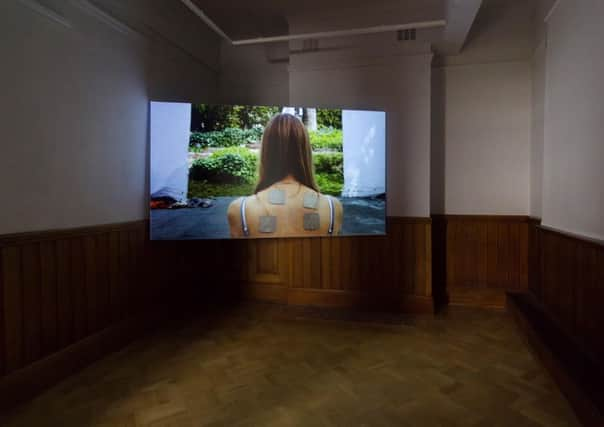Close-up on the business of death


Created by video and performance artist Lucy Beech, Me and Mine is a 35-minute film that explores the growing female presence in what has been a traditionally male-dominated arena and how so-called feminine virtues – such as empathy and compassion – could change our attitudes towards the business of death.
“Four or five years ago a friend died and I went to his funeral which was led by a humanist celebrant,” says Beech, explaining the background to the project. “I was really struck by how this woman who had never met him offered such comfort and how she was considering the life of a person from a non-religious standpoint.
Advertisement
Hide AdAdvertisement
Hide Ad“I started looking back to a time when death was a very female space – women would embalm and sit with the body – but then during the Industrial Revolution women were cast out and death was economised. This new alternative framework developed by women is more of a return to that. In a way these women are rebranding death as a female space.”
This is the backdrop to the film, an interpersonal drama set at an awards ceremony for the funeral industry in which the protagonist – a funeral director with the Co-op, so from a traditional high street brand – meets and interacts with other women working in all areas of the business but particularly those occupying the growing alternative secular framework.
“I am interested in these economies around emotion,” says Beech. “The film is about the mechanising of empathy but in fact there is a lack of empathy among the women, so it also about female competitiveness and female hierarchy.”
Beech spent a year going to industry events like the one portrayed in the film and was able to observe at first-hand what she refers to as “the problems or concerns of appropriating feminism as a brand”. Her main character is based on a woman she met at one of the events who worked at the Co-op and was looking at ways she could incorporate humanist elements in to the servies they offer but who felt she had to keep her identity concealed. “She was a hero for me because she was trying to bridge the gap,” says Beech.
Advertisement
Hide AdAdvertisement
Hide Ad“What you see in the film is part fiction and part re-enactment. The script is taken from a number of sources maybe from interviews or online journals and verbatim recordings. All the actors and extras were given a research pack and a job description and backstory. I wanted there to be pockets of conversation happening – to allow people to improvise but with a body of knowledge.” The project has taken around two years to put together from the initial research through to the actual production and filming. And for Beech the collaboration with others is key. “I really enjoy being able to have a sense of something and then for that to take on other elements through coming together with someone else.”
She has also enjoyed installing the piece at the Tetley – an unconventional art space that, as a former brewery and place of commerce, brings its own resonances. “It is an interesting idiosyncratic space and I didn’t want to deny that,” she says. “It does feel like the kind of space where you might have a conference or a team-building weekend so it is quite appropriate.”